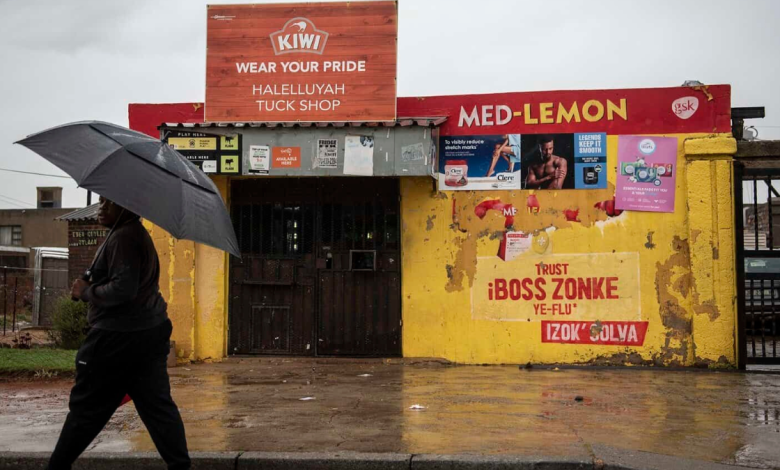Do “Lucky Shops” Exist in Gauteng? Locals Think So

In Gauteng, the term “Lucky Shops” has sparked much discussion. These informal stores claim to offer amazing deals, but are they really as lucky as they seem? While they promise bargains, these shops may come with hidden risks. In this article, we explore the rise of “Lucky Shops” in Gauteng, the potential dangers, and tips for shopping safely at these outlets.
Why Do People Shop at Informal Retail Outlets?
“Lucky Shops” refers to informal retail outlets found throughout Gauteng. These shops typically sell discounted goods, from food to household items, at prices much lower than those found in major retail stores. While the prices seem appealing, the problem is that these shops don’t always follow the same rules and regulations that formal retailers do, which can raise concerns about the quality of the products.
ALSO READ: What Gauteng Lotto Winners Spend Their Money On
The Growing Appeal of Discounted Shopping
In recent years, Gauteng has seen a surge in informal stores. Known as spaza shops or local bargain spots, they have gained popularity in lower-income communities, where affordability is key. “Lucky Shops” allow consumers to buy branded products for a fraction of the price they would pay in mainstream stores. However, the lack of regulation in these stores means there is a higher risk of purchasing counterfeit or expired goods.
Despite these concerns, many Gauteng shoppers continue to flock to these outlets for the savings. But the question remains: are these deals really worth it?
How Safe Are These Shops for Consumers?
The legality of “Lucky Shops” in Gauteng is a grey area. These stores often operate without proper licensing, making it hard to know whether they meet the necessary safety and quality standards. In 2024, Gauteng authorities uncovered a counterfeit operation in Daleside, Johannesburg, where expired canned goods were repackaged and sold under well-known brands like Lucky Star. While authorities shut down the operation, it raised alarms about the risks involved in shopping at informal outlets.
As the government increases efforts to monitor these stores, shoppers must be cautious about where they spend their money.
What Are the Risks of Buying from These Stores?
Shopping at “Lucky Shops” can be risky. These informal outlets often sell counterfeit or expired products. Since they lack proper oversight, there’s no guarantee the goods meet safety or quality standards. In 2024, a foodborne poisoning outbreak linked to spaza shops in Gauteng resulted in 23 deaths. The incident prompted local authorities to tighten regulations for food safety in these informal stores.
Tips for Safe Shopping in Informal Retail Shops
If you decide to shop at a “Lucky Shop” in Gauteng, take these simple steps to protect yourself:
- Check Expiry Dates: Always inspect food and perishable items for visible expiry dates. Avoid products with expired dates or damaged packaging.
- Examine the Packaging: Counterfeit goods often have poor-quality packaging. Look for discrepancies in logos, design, or text, and avoid tampered products.
- Familiarize Yourself with the Brands: Know what the packaging and product design of your favorite brands should look like. Be cautious of unfamiliar products, especially if they look different from what you’re used to.
- Stick to Non-Perishables: If you’re uncertain about the safety of a product, opt for household items or non-perishable goods. These are less likely to be counterfeit and are generally safer to buy.
READ MORE: Lottery Addiction: A Hidden Problem in SA Communities
Should You Shop at “Lucky Shops”?
While “Lucky Shops” in Gauteng offer tempting discounts, they come with hidden risks. These informal retail outlets often lack the safety standards required by formal retailers, making it hard to verify the quality of products. From counterfeit goods to expired items, shopping at these outlets can put you at risk.
If you choose to shop at a “Lucky Shop,” make sure to inspect packaging, check expiry dates, and avoid questionable products. Staying informed and cautious will help you reduce risks while still enjoying the savings.